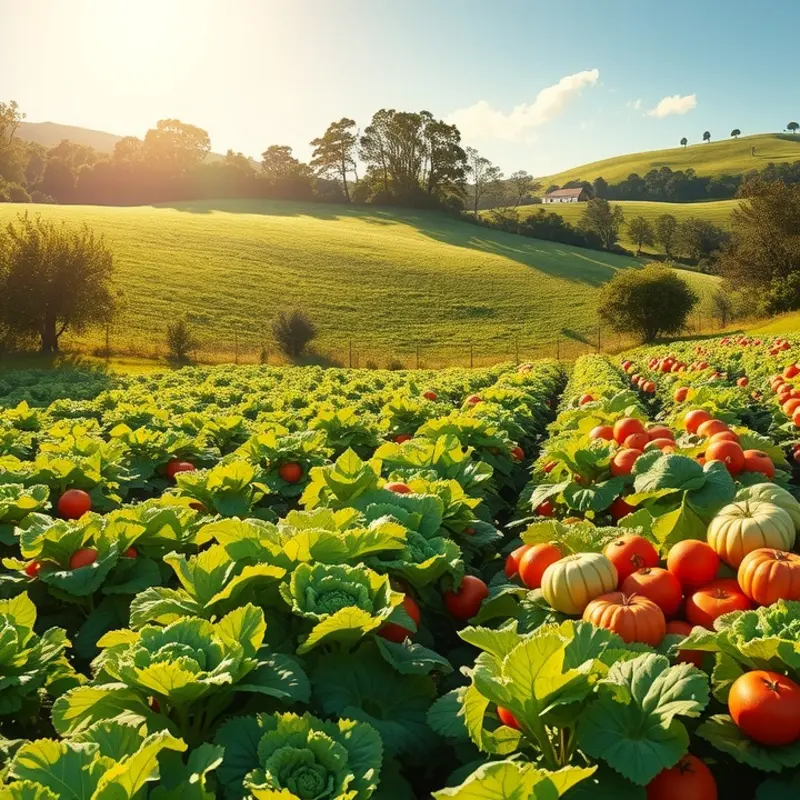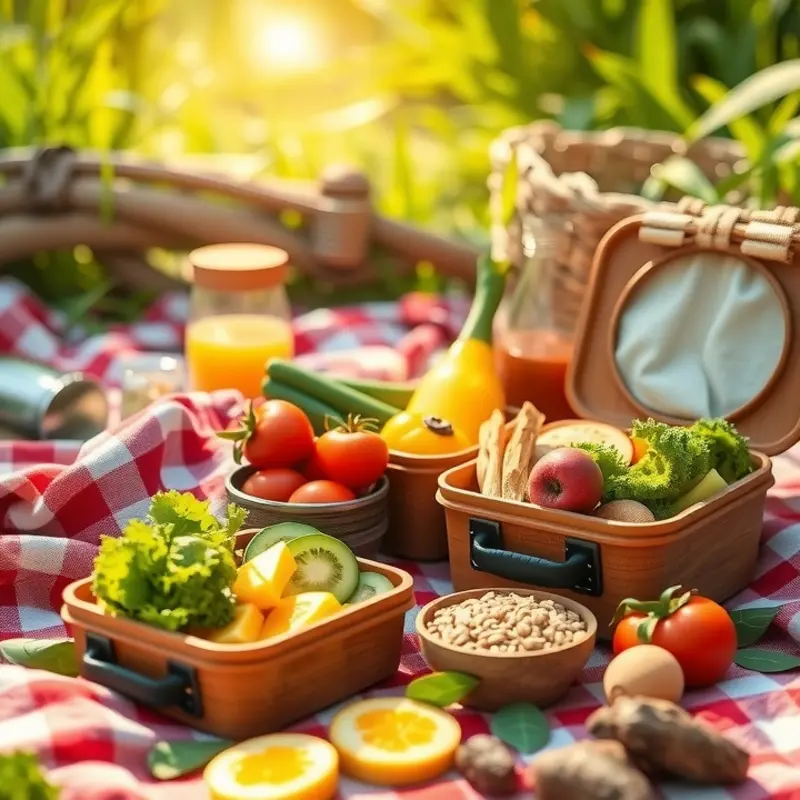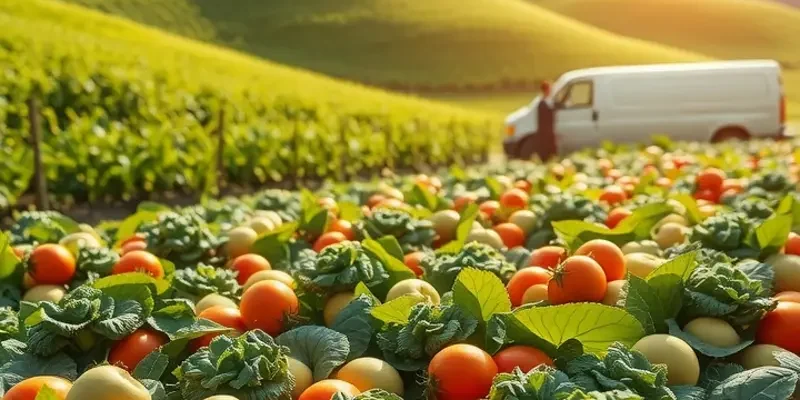Creating kid-friendly meals that are both nutritious and environmentally conscious is a fulfilling journey toward a sustainable lifestyle. Not only do these meals support your family’s health, but they also contribute positively to the planet. From embracing plant-based options to using local produce, this guide is designed to spark creativity in the kitchen while instilling eco-friendly values in little ones. Let’s explore delicious, easy-to-make recipes that the whole family can enjoy together, transforming mealtime into an opportunity for education and mindfulness.
Plant-Powered Plates: Embracing Vegetarian Delights

Introducing children to vegetables can be a fun culinary adventure. By incorporating vibrant and flavorful ingredients, plant-based meals can captivate young palates while promoting good health and sustainability. Veggie-packed meals are not only nutrient-rich but also offer a variety of textures and tastes, making them versatile and enjoyable for family dining.
Benefits of Vegetables:
Vegetables are a primary source of essential vitamins, minerals, and fiber. Regularly including them in meals supports physical growth and strengthens immune systems. Embracing plant-based diets can also reduce the carbon footprint, contributing to a healthier planet. For families looking to embrace eco-friendly habits, skipping meat in just a few meals can have significant environmental benefits.
Making Vegetables Fun:
Creating colorful and interactive meals can entice kids to eat more vegetables. Try crafting vibrant veggie stir-fries using rainbow bell peppers, snap peas, and carrots sautéed with a dash of sesame oil. Utilize child-friendly tools to make veggies more appealing. For instance, spiralizers can transform zucchini into fun noodle-like strands that mimic traditional pasta.
Easy Vegetarian Recipes:
-
Wholesome Veggie Tacos – Fill whole-grain tortillas with seasoned black beans, corn, diced avocados, and fresh cilantro for a satisfying dish. Allow kids to build their tacos, encouraging them to explore different toppings.
-
Colorful Buddha Bowls – Customize these bowls with a mix of grains, roasted sweet potatoes, kale, and a sprinkle of seeds for texture. A drizzle of tahini dressing adds a delicious creamy finish.
Importance of Seasonal and Local Produce:
Opting for seasonal produce not only guarantees fresher flavors but also supports sustainable farming. Seasonal vegetables require fewer resources to grow and transport. Purchasing from local farmers’ markets further reduces transportation emissions and promotes community agriculture.
Encourage children to appreciate the origins of their food by visiting local farms or planting a small vegetable garden at home. Engaging them in the process of growing and harvesting can deepen their appreciation for fresh produce.
For practical tips on adopting eco-friendly habits in the kitchen, consider exploring eco-smart kitchen storage. This can aid in organizing ingredients and reducing waste, complementing the family’s journey to greener and more conscious eating.
In summary, adopting plant-based meals bridges wholesome nutrition with eco-conscious living, setting the stage for healthier and more sustainable eating habits for the whole family.
Wholesome Recipes: Easy Eco-Lunchbox Ideas

Creating eco-friendly lunchboxes that kids find exciting is easier than you might think. Let’s explore some delightful recipes and practical tips to make lunchtime both sustainable and fun. Incorporating vibrant, seasonal vegetables into a quinoa salad not only boosts nutrition but also supports local agriculture. Gather fresh, colorful veggies like bell peppers, cherry tomatoes, and cucumbers. Mix them with cooked quinoa, add a drizzle of lemon juice, and sprinkle with chopped herbs for a refreshing dish.
Homemade energy bars serve as a perfect sweet treat. By making your own, you can ensure they’re free from excessive packaging and unwanted additives. Use a mix of dates, oats, and a handful of nuts blended until they form a sticky dough. Press into a baking dish, chill, and slice into bars. These bars are an eco-friendly substitute for pre-packaged snacks.
Wraps can be to kids’ lunchboxes what capes are to superheroes—an essential staple. Fill whole grain wraps with a selection of your child’s favorite ingredients. Try hummus, grated carrots, and spinach for a plant-powered punch. Or mix things up with avocado, black beans, and salsa. These combinations appeal to various taste buds and ensure lunches are nutrient-rich.
Packing these lunches sustainably is simple: opt for reusable containers and beeswax wraps instead of single-use plastics. Not only do these choices reduce waste, but they also teach children the importance of sustainability. An investment in a sturdy, leak-proof container pays off in durability and reduces environmental impact.
Involving children in the lunch-packing process is a fantastic way to educate them about portion control and sustainable choices. Encourage them to portion out their snacks, using measuring cups to understand serving sizes. Discussing the origin of their food fosters an awareness of its journey from field to lunchbox, sparking curiosity about eco-friendly choices.
Lunchtime can become a more engaging experience by integrating these small but significant changes. Not only does this approach nurture healthier eating habits, but it also fosters an appreciation for the environment. For additional guidance on reducing food waste during preparation, consider exploring tips from this low-waste cooking guide. By adopting these practices, families set the stage for greener habits that extend beyond the lunchbox, paving the way for a more sustainable future.
Final words
Embracing eco-conscious, kid-friendly meals is an empowering way to promote sustainability within your family. By introducing plant-based foods and focusing on local produce, you’re not only providing your children with nourishing meals, but you are also fostering a generation that appreciates and understands the importance of caring for our planet. These wholesome recipes and practices can evolve into cherished family traditions, shaping future choices around food. Encourage your little ones to get involved in the kitchen, making them aware of their role in creating a more sustainable world through their food choices. Every meal is an opportunity to make a difference.








